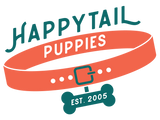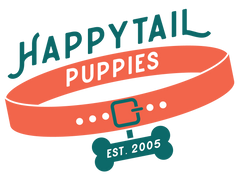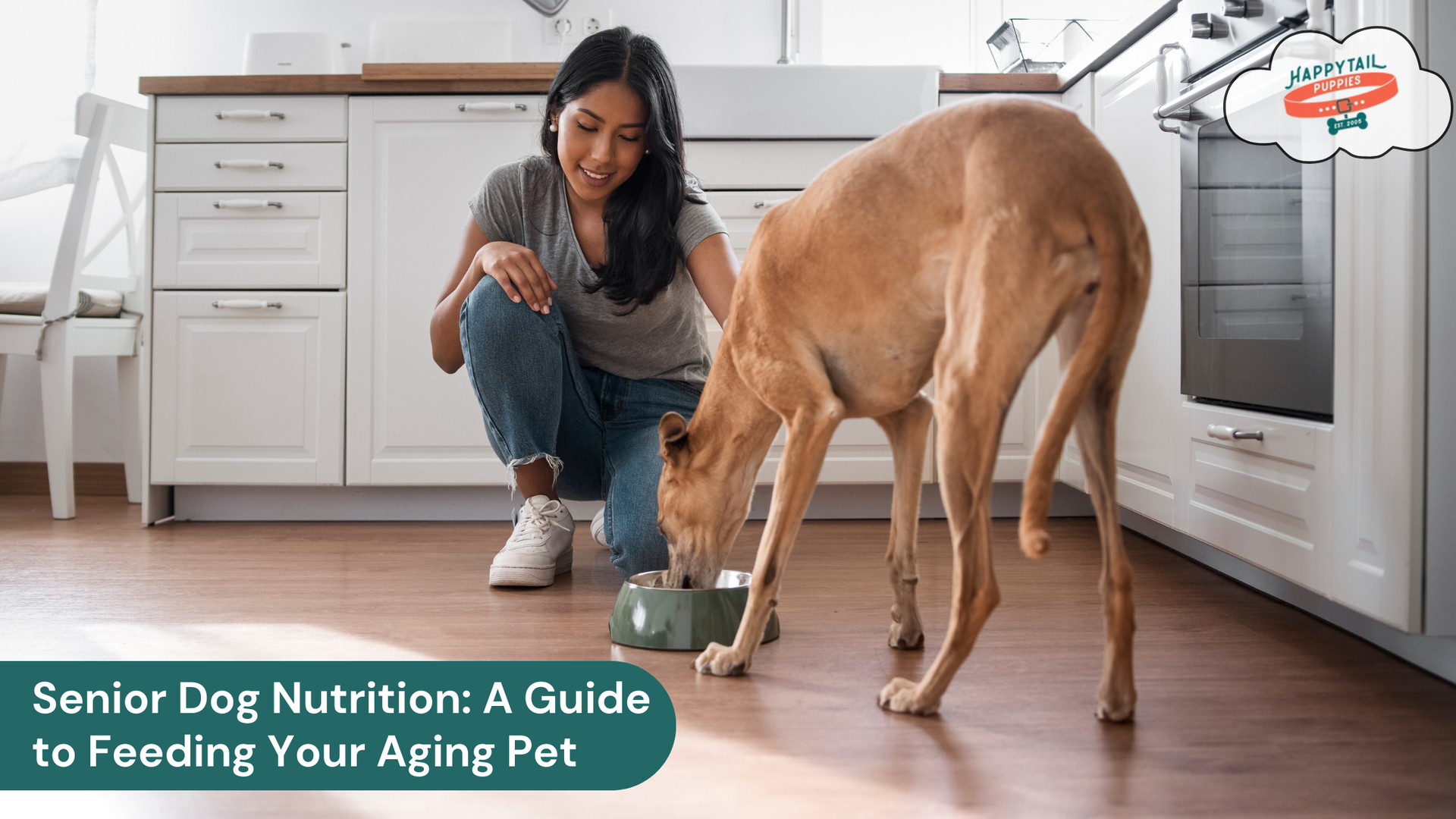Senior Dog Care and Nutrition: What to Feed Your Aging Canine
As dogs age, their nutritional needs change. This guide to senior dog care covers the key elements of a healthy diet, including protein adjustments, joint supplements, and weight management, to help your dog thrive.
As the owner of a dog, you are aware of the fact that the value of a dog is timeless. They not only bring life companionship but also joy and loyalty. But in addition to all these, you will undoubtedly discover your furry friend speedily aging into their golden years. The aging process, too, has its problems, similar to those in human beings. Therefore, as a good pet owner, one needs to know what their needs are.
The way your dog feeds, the level of activity, and the strength of the body in the aging process change. Having the proper nutrition during this phase will allow the senior dog to be full of energy and vitality. This requires high-level efforts to provide senior dog care, which is essential.
Nutrition and Senior Dog Care
Older dogs, particularly those of small breeds, possess their own unique nutritional needs, which are capable of sustaining energy and preventing chronic disease conditions and obesity. The most significant quality, rather than the mass proportion, of protein will support, and a moderate, balanced fraction proportion of fat can support energy and coat health. Besides, be sure to incorporate antioxidants into their diet that may slow their mental deterioration, strengthening their immune system.
Research indicates that dogs given the right to a senior diet live longer and healthier lives. The National Institutes of Health (NIH) has mentioned that a fatty acid-antioxidant-rich diet lowers oxidative stress, which is associated with diseases related to age. These sources show why the owners of pets should be concerned about food composition.
Providing mindful meal planning to your senior dog can be beneficial because it will lead to fewer age-related health complications. It will form a regular habit, which will reinforce the relationship and bring consistency in senior pet care.
Key Elements of Senior Dog Nutrition
The senior dogs have shifting needs, prompting owners to understand the role of specific nutrients and food choices. So, here are a few vital attributes that support senior canines and keep them active until their last breath.
Protein Adjustments for Muscle Health
The senior dogs start losing their muscle mass, leading to fatigue and issues with mobility. The protein-rich sources like turkey, chicken, fish, and lamb retain lean muscle mass. Especially for breeds like the English Bulldog, whose muscle tone and weight management are integral, offering well-balanced protein intake becomes vital to preserve strength without imposing stress on the body. However, it is indispensable to balance portions and avoid excessive protein, which may stress the kidneys in dogs with any pre-existing renal conditions.
Pet owners should consult with vets to achieve the right balance, as protein supports muscle mass, playing a pivotal part in promoting immune functionality and helping with tissue repair. Proactive monitoring ensures that your dog stays strong without imposing stress on their system and maintains breeds prone to muscle disorders, active during their senior years.
Management of Weight and Calories
The older dogs eventually start having low activity levels, which directly burns fewer calories. Overfeeding your dog without any proper adjustment leads to obesity that increases the chance of diabetes, cardiovascular issues, or arthritis. Several pet owners explore controlled approaches, such as a raw food diet for dogs that focuses on lean meats and nutrient-rich veggies, to reduce unwanted weight gain.
Low-calorie, nutrient-rich foods and portion control are better than the frequency of high-energy snacks you give your senior dog. A consistent feeding time can help optimize the regulation of metabolism, preventing begging behaviors, which are common in aging dogs.
Importance of Omega-3 Fatty Acids
Both types of fatty acids are essential for supporting skin health, cognitive abilities, and joint lubrication. Fish-based food oils, flaxseed oil, and salmon oil are the ideal sources. These nutrients can help soothe arthritis stiffness and reduce inflammation, enhancing comfort and mobility in small dog breeds like a Teacup Havanese.
Furthermore, fatty acids are often connected to maintaining sharper mental faculties in senior dogs. The regular supplementation under the proper guidance delays the age-related decline in cognitive abilities, keeping your dogs alert and engaged.
Fiber for Digestive Health
The senior dogs often face issues with a slow digestive system, leading to bloating and constipation. The dietary fiber from sources such as carrots, sweet potatoes, brown rice, and oats supports smooth digestion. Furthermore, we will emphasize the role of probiotics in dog nutrition, which, when combined with fiber, creates a potential gut-friendly approach, strengthening digestion and supporting nutrient absorption.
Additionally, fibers create the sense of fullness that helps to retain the optimal weight. When coupled with proper hydration, it enhances the gut's health and reduces any gastrointestinal discomfort.
Hydration and Moisture-Rich Foods
With age, the sense of thirst declines in dogs, which is a risk of the development of dehydration. Requiring them to eat wet food or food with a moisture content will be beneficial in keeping them hydrated. Owners of small dog breeds such as Cavapoos tend to find that their pets do well with broths or other mixed wet foods, as small breeds have a higher chance of being dehydrated. The Centers for Disease Control and Prevention (CDC) data associates proper hydration with enhanced organ performance and metabolic equilibrium, which also resonates in terms of long-term wellness among pets.
Hydration also maintains the health of the kidneys and the urinary system, which becomes prone to problems as people age. Frequent water changes to keep the water cool, and also exposing your dog to as many hydration sources as possible, can encourage your dog to drink habitually.
Joint Support Through Nutrition
Arthritis and joint discomfort are common in senior dogs. Glucosamine, chondroitin, and MSM are two nutrients that promote cartilage health and reduce stiffness. Most owners use supplements alongside some Natural Remedies to Treat Canine Arthritis, like green lipped mussel extract and turmeric, which have anti-inflammatory properties.
The frequent intake of these nutrients enhances movement and the standard of living. A survey conducted by the Arthritis Foundation found that approximately one in four adult dogs has arthritis, making preventive nutrition measures crucial for a dog's senior health.
Dental-Friendly Food Choices
Older age is associated with deteriorating dental health, causing discomfort and eating difficulty. Soft kibbles that are dentally healthy can further ease the process of chewing. Dental chews or enzymatic additives in the food can be added, too. Studies by the American Veterinary Medical Association (AVMA) indicate that over 80% of dogs experience dental issues by the age of three, making it crucial to incorporate dental-friendly nutrition into their lives, particularly later in life.
Dental-friendly diets help prevent infections and improve nutrient absorption. Chewing without pain stimulates appetite and enjoyment in food among dogs.
Antioxidants for Immune Support
Aging brings a natural decline in immune function. Blueberries, spinach, cranberries, and some over-the-counter supplements include antioxidants that fortify defenses. They also kill harmful free radicals known to lower the rate of aging and promote disease development.
The daily intake of these nutrients safeguards the tissues and cells against oxidative stress. This feeding approach reverses age-related changes and makes dogs more robust to infection.
Tailoring Diets for Specific Conditions
Older dogs usually have a problem with diabetes, kidney disease, or heart problems. Specialized diets help manage these concerns. For example, low-phosphorus diets are helpful in kidney patients, and low-sodium diets are beneficial for heart health.
Veterinarians provide valuable guidance in selecting therapeutic foods. Medical-based diets offer more comfort and extend the active years of senior dogs.
Supplements for Enhanced Wellness
Supplements play an essential role when whole food diets fall short. Probiotics improve gut health while vitamins like C and E strengthen immunity. Omega fatty acids, joint supplements, and multivitamins add a safety net for older dogs.
Pet owners should consult their vet before starting supplements. Excessive intake of specific vitamins or minerals can be harmful. Balanced supplementation supports healthy aging without overwhelming the system.
Homemade Diets and Balanced Recipes
Some owners prefer preparing homemade meals for senior dogs. Lean proteins and vegetables, along with whole grains, can be adapted to meet the desired requirements. The most common ingredients are pumpkin, carrots, chicken breast, and rice.
Homemade diets should also be balanced and contain all needed vitamins and minerals. A veterinary nutritionist would ensure that no shortcomings are accepted, while still providing owners with the satisfaction of knowing that personal meals are being prepared.
Choosing the Right Commercial Senior Dog Food
Commercially produced dog food is prevalent for specific formulations for aging dogs. These typically contain reduced-calorie, total joint-supporting nutrients and improved fiber. Reading labels and checking ingredient quality is essential.
Owners should avoid foods containing high amounts of artificial fillers, preservatives, or sodium. To ensure nutritional content, select brands of foods that comply with the Association of American Feed Control Officials (AAFCO) standards.
Monitoring and Adjusting Over Time
No single diet works forever. The nutritional requirements of ageing dogs may change more as the dogs progress in age. Vet visits and weight management are needed to make corrections regularly. Monitoring energy levels of coat quality and digestion provides indications of the effectiveness of the diet.
The continual wellness requires adjusting portion sizes or the nutrient levels based on both veterinary opinions and the health of the dog. Nutrition of the elderly dog is an ongoing process and not a one-time decision.
Conclusion
Dog care in senior age is not just loving it, but involves being aware of the changing nutritional requirements. Well-balanced diets that are rich in high-quality protein, fatty acids, fiber, antioxidants, and hydration enhance mobility, immunity, and digestion. Calorie adjustments and selection of senior foods ensure that aging dogs will remain active and comfortable. Adapting to these needs gives pets a longer, healthier, and happier life, which owners can experience firsthand. Being conscious of food choices also allows senior dogs to have a graceful aging process, where they can be afforded a respectable dignity.


